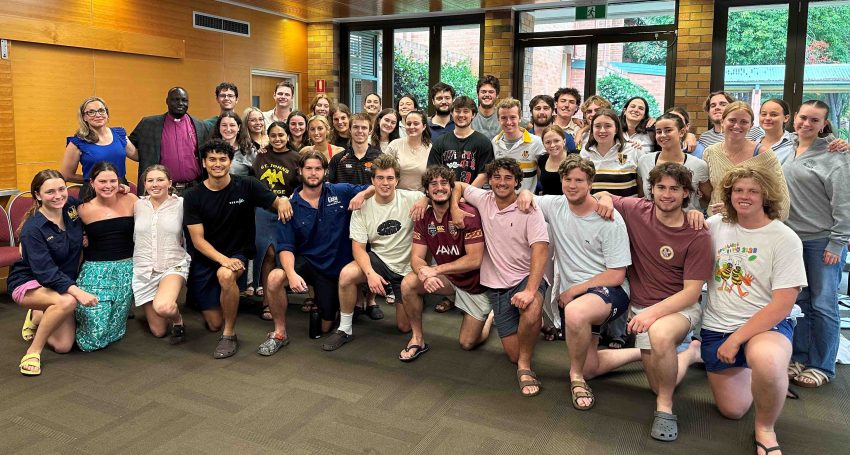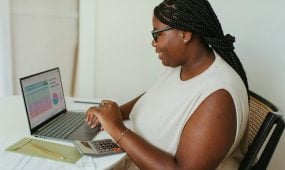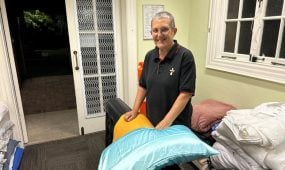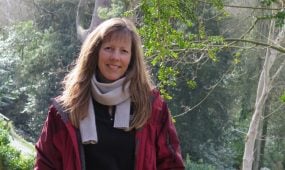When assumptions go awry
Justice & Advocacy
“I recently shared some of my experiences with elected student leaders from St John’s College within the University of Queensland alongside the anglican focus editor Michelle McDonald. We were invited by the college to run a session for the student leaders on cultural capability and we shared the following personal stories in our workshop,” says Bishop Daniel Abot

I recently shared some of my experiences with elected student leaders from St John’s College within the University of Queensland alongside the anglican focus editor Michelle McDonald. We were invited by the college to run a session for the student leaders on cultural capability and we shared the following personal stories in our workshop.
During the civil war in Sudan in 1986, I fled my village home as a 12-year-old boy. I was one of thousands of the so-called “Lost Boys of Sudan”. We fled to escape the persecution of the government, walking long distances, for a month at a time, in 50-degree heat. During our desert journeys, many of us Lost Boys died from disease, starvation, dehydration, bombs, gunfire or from being eaten by wild animals. After six years of desert journeys, I spent nine years in Kakuma Refugee Camp, where I met my wife, Rachel. I became a priest in 2003 in Kenya and then moved with Rachel to Queensland after our claim for refugee status was processed by the United Nations. We now have seven beautiful children aged between 10 and 25 years.
In many African cultures, including my own Dinka culture, direct eye contact is considered rude and disrespectful. It is especially inappropriate for a youth to look an elderly person or a person in authority directly in the eye. We tend to look at the bridge of the nose in conversation and/or avoid facing each other directly. In the refugee camp I was told to look the Australian government immigration worker, who was processing my claim for refugee status, in the eye. I was advised to do this because some fellow Lost Boys had been denied refugee status for avoiding direct eye contact in their interviews — it seems that their lack of eye contact was seen as a sign of dishonesty. I remember needing to practise looking someone in the eye during conversation before my interview.
Before I told this story to the students, Michelle shared about how in “white” Australian culture, which she is most familiar with, direct eye contact during conversation is generally considered appropriate, sincere and respectful. Since coming to Australia I have learnt that this applies to people who are both familiar and unfamiliar. A person who avoids direct eye contact in “white” Australian culture may be regarded as being evasive, dishonest, guilty, disgusted or bored.
Advertisement
Michelle and I also spoke about how the idea of “familiarity” is connected to “unconscious bias”. Unconscious biases are among the barriers we need to recognise and address so that we can include, welcome and respect all peoples and treat them fairly. Psychologists tell us that our unconscious biases are simply “people preferences” that we have developed. Some people are more familiar to us, which can lead us to unconsciously “prefer” people who look like us, speak like us, behave like us or share our interests. Our life experiences, socialisation and values subtly shape how we think and feel, thus contributing to unconscious bias.
As a result, our unconscious biases can sometimes lead us to unintentional discrimination — Michelle gave the example about how she notices that “white” people are often asked to read scriptures and intercessory prayers at church services even if there are many people from different cultural backgrounds joining in the worship.
She then shared about how our desire to be fair helps us to challenge and change the way we think, and consequently how we behave. This leads to fairer decision making, a more inclusive and welcoming culture and better problem solving, especially in new or unusual situations. For this shift to happen, we need to be aware of our biases and associated habits, and unlearn these.
Advertisement
We also need to be wary of making assumptions about other cultures. Michelle shared an amusing story about how she dared Walters Nkemfack, a Queensland Community Organiser originally from West Africa, $100 to dance on the stage with South Sudanese Acholi dancers at a formal African gala in May. Walters twice gave her the opportunity to back out of the dare; however, Michelle — thinking that he was being timid, rather than gallant — then upped the offer to $1,000. At this point, Walters stood up, took $100 out of his wallet, and joined the dancers on the stage. He danced enthusiastically with them before giving the dance troupe leader the $100 as a customary “encouragement”. The following day, Michelle transferred $1,000 to Walters’ bank account and he, being a good man, donated the money to a Yes23 football event. They share this funny story in the first 4.5 minutes of this Queensland African Communities Council YouTube video.
The following day when I saw Michelle at Christ Church, Yeronga for their centenary anniversary service and she told me about her dare, I asked her, “Didn’t you know that in African cultures it’s considered polite to join dancers on the stage and dance with them?” Michelle responded with, “Well, I do now, Bishop Daniel.”
I look forward to writing more about cultural capability, including how we can unlearn our unconscious biases and become more culturally intelligent so our faith communities are more welcoming and inclusive, in future anglican focus reflections.





